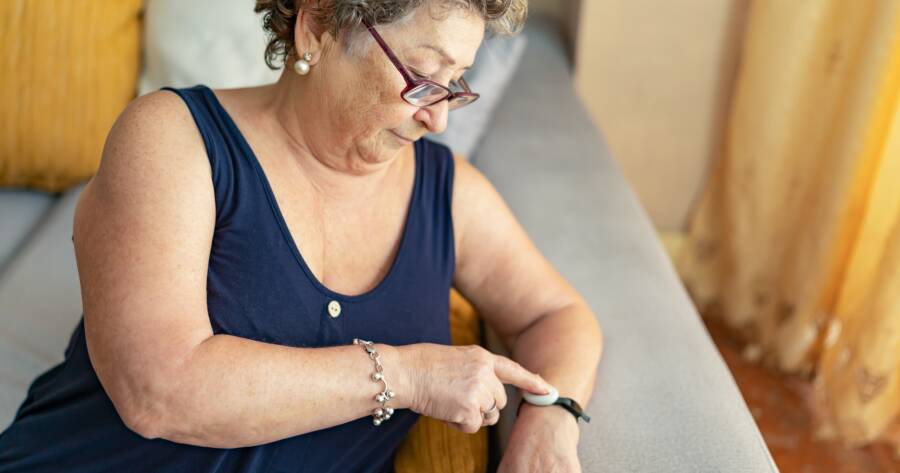Medical alert systems have emerged as a lifeline to safety and independence for seniors. These systems provide round-the-clock monitoring and emergency response, empowering seniors to live independently while giving them and their families peace of mind.
What are Medical Alert Systems?
Medical alert systems are devices designed to provide quick access to emergency assistance for individuals, particularly older adults and those with health conditions or disabilities. Medical alert systems typically consist of two main components:
- A wearable device: This is usually a pendant, wristband, or belt clip with a help button that the user can press in case of an emergency.
- A base unit: This connects to the user’s phone line or cellular network and communicates with the monitoring center.
When the user presses the help button, it sends a signal to the base unit, which then contacts the monitoring center. A trained professional at the center assesses the situation and dispatches appropriate help, such as emergency services or designated contacts.1
Enhanced Senior Independence
Medical alert systems play a pivotal role in enhancing the independence of seniors. By providing a reliable safety net, these systems allow seniors to maintain their daily routines and continue living in their own homes. Many companies offer a range of medical alert systems tailored to different needs and preferences. For example, some even feature a lightweight mobile help button that enables seniors to seek assistance from anywhere within the range of their home’s Wi-Fi network.2
Reduced Injury Risk With Alerts
Medical alert systems significantly reduce the risk of falls and injuries among seniors. These systems are equipped with advanced fall detection technology that can automatically detect a fall and promptly dispatch help. Some systems utilize motion sensors to accurately identify falls and minimize the risk of false alarms. Additionally, these systems provide seniors with a direct line to emergency response centers, ensuring prompt medical attention in case of any health-related emergencies.
Improved Living Experience
Medical alert systems greatly contribute to improving the overall quality of life for seniors. By providing a sense of security and independence, these systems enable seniors to remain active and engaged in their communities. For instance, many offer a variety of features designed to enhance seniors’ well-being, including medication reminders, activity tracking, and access to telehealth services. These features empower seniors to manage their health proactively and maintain a higher quality of life.3
Why You Should Learn More About Medical Alert Systems
Medical alert systems offer a range of benefits that can significantly enhance the safety, independence, and quality of life for seniors. By providing 24/7 monitoring, fall detection, and emergency response, these systems empower seniors to live independently while ensuring their well-being. To learn more about the different types of medical alert systems available and how they can benefit you or your loved one, continue your research.
